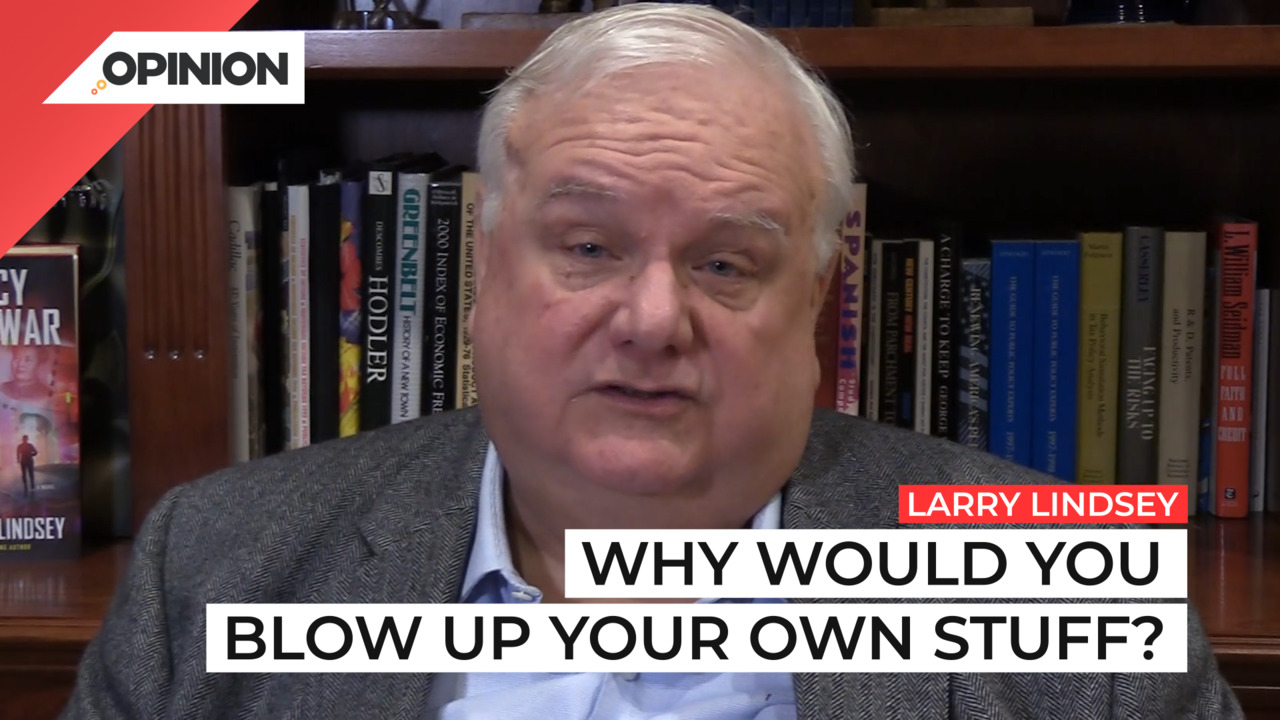
Commentary
-
Our commentary partners will help you reach your own conclusions on complex topics.
Recently, there’s a huge tragedy. The Nord Stream pipeline that takes natural gas from Russia to Germany developed a number of leaks. And it was not just the Nord Stream two pipeline, which was recently completed was also the Nord Stream, one pipeline, and they occurred in different spots. Well, it was pretty obvious this wouldn’t happen spontaneously in four or five places. And so the world agrees that it was likely sabotage. And what we’ve been seeing is mutual blame. NATO blames Russia.
General von Stoltenberg, who’s the Secretary General of NATO, called this an attack by Russia on critical infrastructure, which he tried to make as a pretext for a military response.
On the other hand, Russia points out that it’s a Russian assets. Gazprom owns 51% of it, and Gazprom is an arm of the Russian government. So the question would arise, why would Russia damage something that costed $11 billion to build and is continues to be an asset that might possibly in the future, again, carry gas from Russia to Europe?
Well, this is a bit of a problem for the claim that Russia did it. Now, let me be clear, Russia is the most likely person to have done it. Putin is a bad guy and bad guys do things like that.
On the other hand, why would you blow up your own stuff? So a number of commentators who are clearly not pro Russia, have begun pointing it out. A longtime friend of mine, Radek Sikorski, who used to be both the Foreign Minister and also the defense minister of Poland, and believe me, he is no fan of Russia or Putin said the other day.
Thank you, USA. Now 20 billion of scrap metal lies at the bottom of the see another cost to Russia.
Jeff Sachs, who I’ve also known a long time, who’s important economist in a whole variety of roles and global economic development, pointed out most of the world blames the US a for this.
Sacks, by the way, is would be very pro administration. He’s on the left. Finally, there’s Secretary of State Anthony Blinken, whose first comment was that this was in no one’s interest. But then, four days later, he said the following thing at a press conference about the Nord Stream incident, quote,
it’s a tremendous opportunity to once and for all removed dependence on Russian energy.
Well, I hardly think of this as an opportunity that’s hard to see what a winning thing it was. But in saying what he said, blinking is Lincoln is repeating exactly the Russian line it uses for accusing America. Europe doesn’t benefit Russia doesn’t benefit. But America by breaking Russia’s oil exports, and by allowing itself to export more to Europe is a beneficiary. Again, we’re not saying America did it. But why would Blinken say that?
So it has long been US policy after the Ukraine War started to permanently remove Russia as an economic and military threat. And frankly, Lincoln’s observation would go along with that long standing policy.
How will it affect markets? Well, at first, not very much gas already didn’t flow through the Nord Stream pipeline.
The EU is going to stop all imports in December from Russia. And Russia said shut down the pipeline, ostensibly because it had a break in one of its transmission stations and could not repair it because of sanctions. Whatever. Why don’t we blame Russia explicitly? Well, the fact is
Russia transmits oil through natural gas in other ways, including through Poland. Those transit fees represent 8% of Ukrainian GDP. That’s a lot and Ukraine would put a big hit. They also might cut off the flow there, and that would be harmful to Europe.
So there is no concrete proof one way or the other, it’s likely that Putin did it. We also know that there was huge environmental damage. The amount of methane that was released when the pipeline broke was the equivalent in terms of global warming gases to 2 million cars driving for a year.
Finally, there are permanent economic damages, and it also lowers the chance that trade will ever resume. The world has benefited a lot from globalization. And this is another nail in its coffin.
-
Election 2024 will boil down to the Great Lakes states
Pollsters and pundits have been engaged in a long debate about how Biden or Trump might win the 2024 election, with much of their focus spent on the “swing state” electoral battlegrounds. While the winners of Alabama or California may be obvious, for instance, who wins Pennsylvania is a more difficult question. Watch the above… -
Why the Fed should consider Theory of Reflexivity when fixing policy
The Theory of Reflexivity, often used in the context of economics and financial markets, implies that investors don’t base their decisions on reality but on their perceptions of reality. This creates a feedback loop where investors’ perceptions influence economic fundamentals, which in turn alter investor perceptions. Watch the above video as Straight Arrow News contributor… -
Federal Reserve surpassed its own wildest expectations
On May 14, the U.S. Bureau of Labor Statistics released the most current producer price index (PPI) report, which showed an increase of 0.5% month-over-month in April. After the report’s release, U.S. Federal Reserve chairman Jerome “Jay” Powell said that while he believes the current policy rate is restrictive by many measures, the Fed needs… -
Polls give slight advantage to Trump in Electoral College
With the U.S. general election only six months away, leading candidates President Joe Biden and former President Donald Trump appear to be engaged in a very close contest. In their 2020 race, the winner of the Electoral College was ultimately determined by a relative handful of voters in just a few swing states, even though… -
College sports is big money but not everyone benefits
March Madness has wrapped up and Caitlin Clark has emerged as a household name as well as a wealthy student athlete. Earning over $3 million throughout her college career, her success stands in stark contrast to the previous notion that collegiate athletes shouldn’t earn anything beyond their scholarship. Straight Arrow News contributor Larry Lindsey examines…
Latest Opinions
-
 Getty Images
Getty Images
DOE to investigate Maine Education Department over trans athletes, Title IX
-
 Reuters
Reuters
New coronavirus discovered in bats similar to COVID-19
-
 AP Images
AP Images
Pope Francis in critical condition with asthma-like respiratory crisis
-
 Getty Images
Getty Images
Knife attack in eastern French city claims one life, injures at least 2 others
-
 Getty Images
Getty Images
DOJ investigating UnitedHealth over Medicare Advantage billing: Report
Popular Opinions
-
In addition to the facts, we believe it’s vital to hear perspectives from all sides of the political spectrum.






